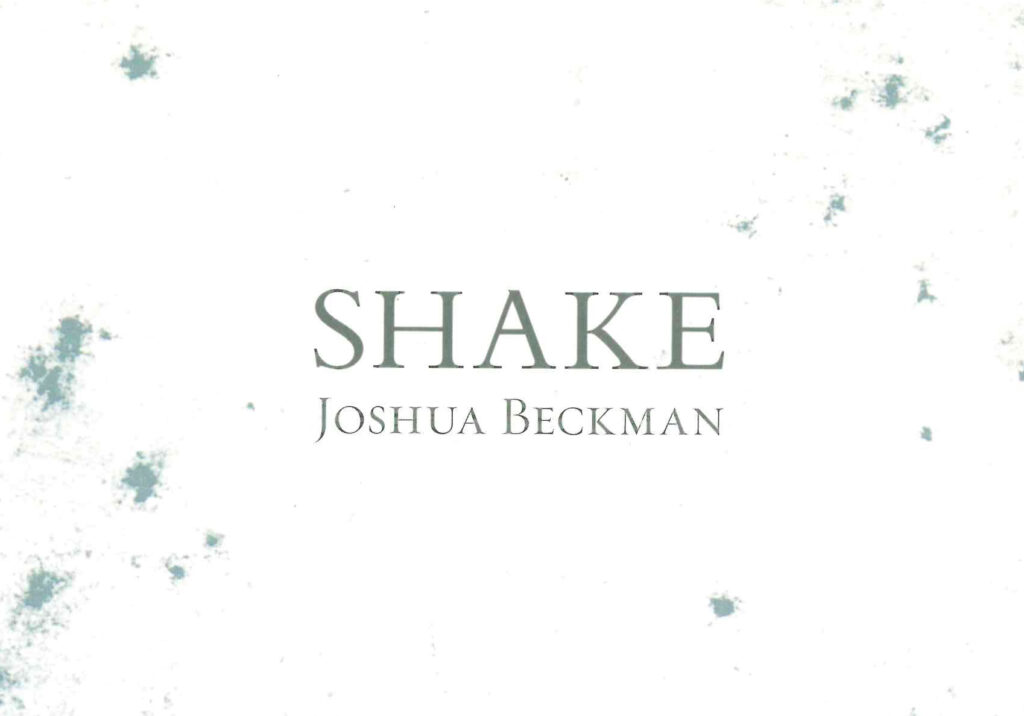Shake
Joshua Beckman
Wave Books, $12 (paper)
“The glass box in which the lettuce grew / was broken by nasty racoons / and we turned the other cheek,” reports Joshua Beckman. “No incredible silence, no / intangible calorie, just / bad racoon in a good world.” The notion of the world as good finds itself under investigation in Shake, Beckman’s fourth solo collection, as the poet tracks discernable signs that “people, all at once, can be kind and thoughtful.” In the title sequence that opens the book, human gesture occasionally transcends mere decency in order to become tender, even beautiful: “Countries fill their countrysides / with sheep so that their countrysides / can be nibbled upon—everyone’s trying.” In “Let the People Die,” the skillful sonnet sequence at the center of Shake, syntax is indeed “shaken,” rearranged, reworked. If syntax is an act of faith, then “Let the People Die” doesn’t so much arrive at belief as circumnavigate it, doesn’t so much testify as hoard: “The dead girl by the beautiful Bartlett. / I’m sad, I make horrible sentences. / A woman alone in the park waves. The water. / The dead girl by the beautiful Bartlett.” Shake’s third and final section, the meditative sequence “New Haven,” shows Beckman as a Whitmanesque cataloguer of experience, charting both the psychic and the physical space we move through at the end of empire, “The flat world of borrowed things / and the banging of everything that is heavy / into everything else.” Beckman confesses that “To collect of things is all I ever know,” but this isn’t a declaration of acquisitiveness so much as a statement of poetic vocation, suggesting something akin to Rilke’s proposition that “Perhaps we are here in order to say: house, / bridge, fountain, gate, pitcher, fruit-tree, window.” “Somewhere a willow sways above a pool,” Shake concludes. “Here is the pool. / Here is where the willow will go.” The world as Beckman sees it is as good as we make it—the tending is the point—and we are lucky to have him in our garden.








